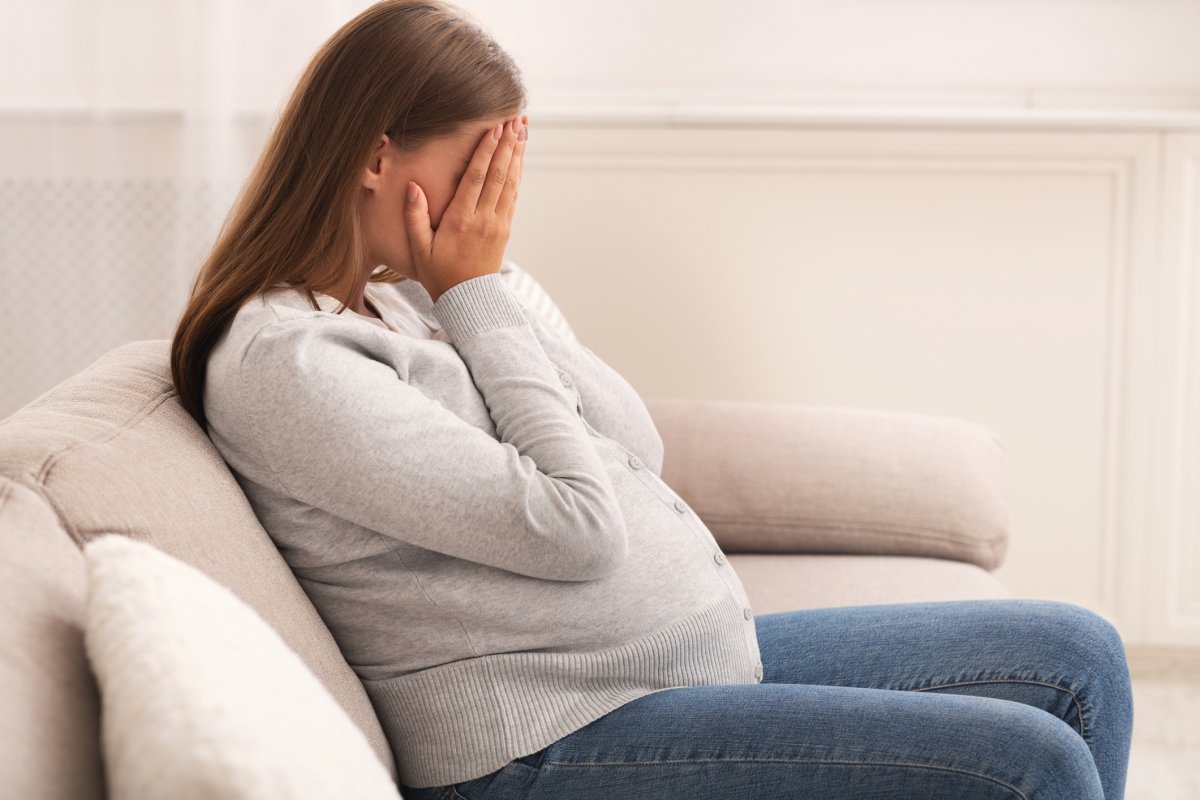Health care workers have described what is thought to be the first known case of a woman developing claustrophobia because she was pregnant.
Claustrophobia is an anxiety disorder where the person has an irrational fear of being closed in or being unable to escape a situation.
The unnamed 35-year-old woman was suffering from "significant" symptoms of anxiety when her family doctor referred her to a hospital psychiatry clinic in Ireland. She was 26 weeks pregnant with her first child at the time, according to health care workers at the Department of Psychiatry, Galway University Hospitals, Ireland, who published the case study in BMJ Case Reports.
According to the authors, anxiety during pregnancy is relatively common. This can include anxiety disorders related to pregnancy, such as the fear of becoming pregnant, or tokophobia.
They said the case shows more research is needed to understand how common phobias are during pregnancy, and that healthcare workers should be mindful of such conditions in their patients.
The woman first started experiencing claustrophobia symptoms after she had a panic attack in her house. The night before, she had had a nightmare about giving birth.
Before being seen at the hospital, the woman had experienced repetitive, intrusive thoughts for four weeks about being trapped emotionally and physically in her pregnancy. These thoughts were affecting her quality of life.
She "described a strong desire to not be pregnant due to this feeling of entrapment," the case study reads. The woman described her intrusive thoughts as "irrational."
Before she became ill, she had not had a fear of being pregnant or of labor, and she was excited about being pregnant in the first trimester. She had, however, in the past had a fear of elevators and air travel, but the symptoms had improved in recent years.
The woman said that when she had her first panic attack "my train of thought was: 'well now I am pregnant, I cannot take medication or sleeping pills so I don't have a safety net, I'm on my own.'"
"I was unable to let go of the thought that I was trapped in this situation and that medicine was not accessible to me because it would harm the baby. I obsessed about the days, the hours, the minutes until I could get to 30 weeks pregnant because in my head that was the week when my baby and I would be safe if they needed to 'take her out of me.'"
The woman was in a constant state of heightened anxiety, and suffered symptoms including trembling, excessive sweating, nausea and palpitations for many hours a day. She also experienced insomnia, was unable to concentrate, lost her appetite and had a low mood.
She said: "Then I fell into the 'fear of the fear' loop, terrified of the next panic attack, which would surely be around the corner. The anxiety was the cause of the inevitable insomnia that followed and severe body convulsions. I had lost complete control of my mind and body, I felt broken and unable to cope."
The authors wrote that her symptoms suggested she had claustrophobia associated with pregnancy "which has not been previously reported on."
The woman's symptoms eased after she had therapy and took an antipsychotic drug at a low dose and another drug used to treat conditions such as anxiety and depression.
As the woman's pregnancy progressed, she no longer felt trapped and had minimal symptoms. When she became pregnant again, she had similar but less severe symptoms. A year after the birth of her second child, she no longer suffered from anxiety.

Uncommon Knowledge
Newsweek is committed to challenging conventional wisdom and finding connections in the search for common ground.
Newsweek is committed to challenging conventional wisdom and finding connections in the search for common ground.
About the writer
Kashmira Gander is Deputy Science Editor at Newsweek. Her interests include health, gender, LGBTQIA+ issues, human rights, subcultures, music, and lifestyle. Her ... Read more
To read how Newsweek uses AI as a newsroom tool, Click here.








